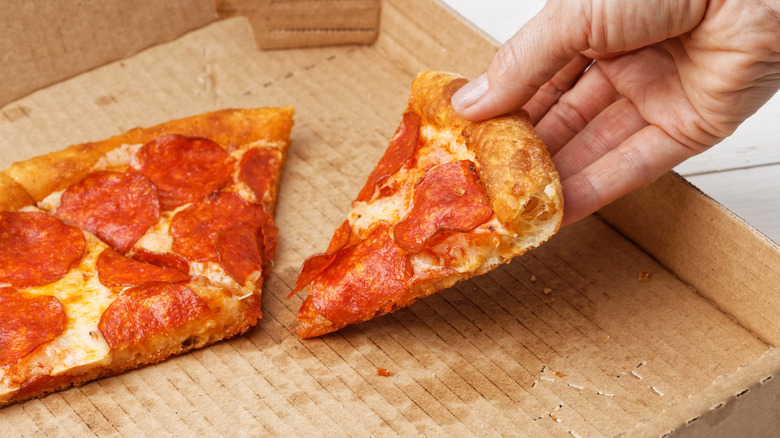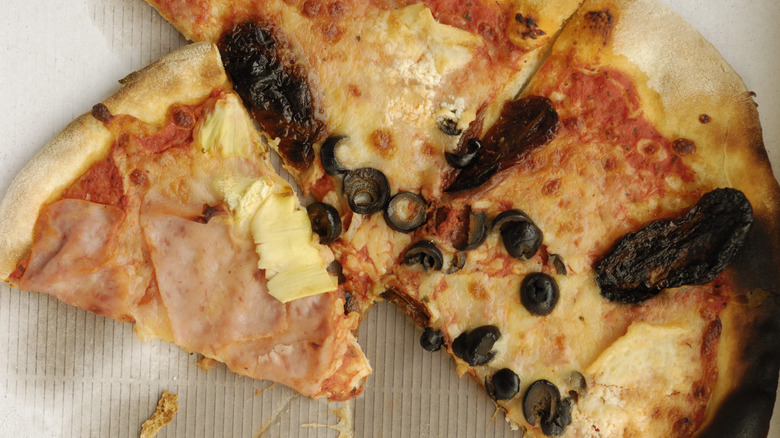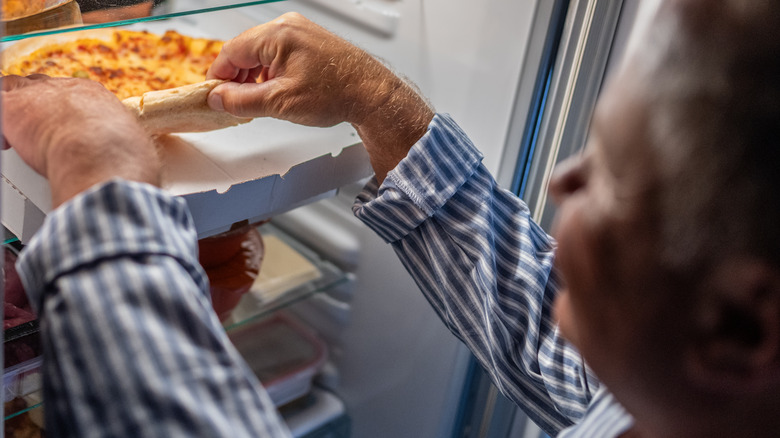The Science Behind Why Cold Pizza Tastes So Good
It's 11 a.m. — you've just woken up. Stumbling, bleary-eyed, into the kitchen, you see the fridge and remember. You fling the door open, and there they are, bathed in heavenly fluorescent light. Two slices of pizza, left from the night before in anticipation of just this moment. You're saved. This might be the best that anyone has ever felt.
We know that feeling. Cold pizza is a miracle unto itself, a well-regarded phenomenon that it is somehow superior to the hot version (at least the typical delivery stuff — Neapolitan pizza, with its thin crust and fresh mozzarella, doesn't tend to do all that well in the fridge). But have you ever stopped to ask yourself why?
Pizza stays good when cold because it retains its structural integrity — the molecular makeup of pizza allows for this: Oil and water naturally separate, so those layers of dough, sauce, and cheese help your pizza avoid melding into one messy, greasy glob. A night in the fridge also allows the flavors of every layer to get to know each other and to mellow out, resulting in a more cohesive, deeper final taste.
How cold pizza hacks your brain
While we may not understand every aspect of how the human brain works, we do have an understanding about how we perceive taste — and a lot of that hinges on temperature. It's the same logic as why we chill white wines — or why some beers are best served warm. Cold food usually has a less intense flavor than dishes served warm, as the taste receptors that process bitter and sweet notes are less responsive. But when it comes to salty and sour things, the receptors aren't affected by the change in temperature in the same way, so the saltiness of that cold pizza is greatly intensified.
It also means that the sweetness of the tomatoes (and, depending on the dough, the crust too) is tempered slightly, which will only serve to further amp up those salty notes. When you chow down on that cold slice the next day, it's actually changing your brain's perception of taste, enhancing your enjoyment of next-day delivery pizza.
The cold brings everything together
When food containing very strong, aromatic flavors (think a simple French onion soup or a Swiss chard coconut curry, for example) is served hot, those aromas tend to be distinctive — so much so that we almost taste them separately. But chilling overnight allows those flavors to settle, blending them into a much more cohesive, delicate mix.
What's more, cold pizza might even adjust how you absorb starch than if you ate it right away. Spending the night in the fridge helps transform the starch within the pizza into what's known as resistant starch, which is less prone to being broken down into sugar by our digestive system. This means that we'd process it more like fiber than, well, pizza. So not only does cold pizza taste fantastic, but it transforms how the starch of the dough behaves in our guts, too.
So the next time you find yourself groggy-eyed and teetering in front of the refrigerator questioning all your life choices, take solace in the fact that a delicious slice of cold pizza is awaiting you, ready and delicious to eat right out of the ice box.



